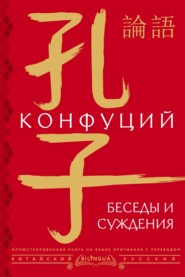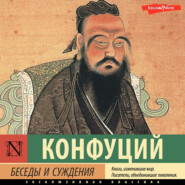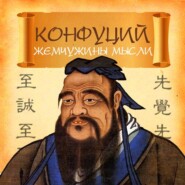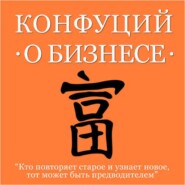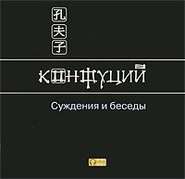По всем вопросам обращайтесь на: info@litportal.ru
(©) 2003-2024.
✖
Chinese Literature
Автор
Год написания книги
2018
Настройки чтения
Размер шрифта
Высота строк
Поля
54
Lo-han, Arhat, Arahat are all designations of the perfected Ârya, the disciple who has passed the different stages of the Noble Path, or eightfold excellent way, who has conquered all passions, and is not to be reborn again. Arhatship implies possession of certain supernatural powers, and is not to be succeeded by Buddhaship, but implies the fact of the saint having already attained Nirvâna.
55
Tushita is the fourth Devaloka, where all Bodhisattvas are reborn before finally appearing on earth as Buddha. Life lasts in Tushita four thousand years, but twenty-four hours there are equal to four hundred years on earth.
56
Maitreya was a Bodhisattva, the principal one, indeed, of Sâkyamuni's retinue, but is not counted among the ordinary disciples, nor is anything told of his antecedents. It was in the Tushita heaven that Sâkyamuni met him and appointed him as his successor, to appear as Buddha after the lapse of five thousand years. Maitreya is therefore the expected Messiah of the Buddhists, residing at present in Tushita.
57
Chang K'een, a minister of the emperor Woo of Han (B.C. 140-87), is celebrated as the first Chinese who "pierced the void," and penetrated to "the regions of the west," corresponding very much to the present Turkestan. Through him, by B.C. 115, a regular intercourse was established between China and the thirty-six kingdoms or states of that quarter.
58
Less is known of Kan Ying than of Chang K'een. Being sent in A.D. 88 by his patron Pan Châo on an embassy to the Roman empire, he only got as far as the Caspian sea, and returned to China. He extended, however, the knowledge of his countrymen with regard to the western regions.
59
"The precious Buddha," "the precious Law," and "the precious Monkhood"; Buddha, Dharma, and Sangha; the whole being equivalent to Buddhism.
60
Bhikshu is the name for a monk as "living by alms," a mendicant. All bhikshus call themselves Sramans. Sometimes the two names are used together by our author.
61
Sakra is a common name for the Brahmanic Indra, adopted by Buddhism into the circle of its own great adherents;—it has been said, "because of his popularity." He is now the representative of the secular power, the valiant protector of the Buddhist body, but is looked upon as inferior to Sâkyamuni, and every Buddhist saint.
62
Asoka is here mentioned for the first time—the Constantine of the Buddhist society, and famous for the number of vihâras and topes which he erected. He was the grandson of Chandragupta, a rude adventurer, who at one time was a refugee in the camp of Alexander the Great; and within about twenty years afterwards drove the Greeks out of India, having defeated Seleucus, the Greek ruler of the Indus provinces. His grandson was converted to Buddhism by the bold and patient demeanor of an Arhat whom he had ordered to be buried alive, and became a most zealous supporter of the new faith.
63
The modern Peshâwur.
64
A first cousin of Sâkyamuni, and born at the moment when he attained to Buddhaship. Under Buddha's teaching, Ânanda became an Arhat, and is famous for his strong and accurate memory; and he played an important part at the first council for the formation of the Buddhist canon. The friendship between Sâkyamuni and Ânanda was very close and tender; and it is impossible to read much of what the dying Buddha said to him and of him, as related in the Mahâpari-nirvâna Sűtra, without being moved almost to tears. Ânanda is to reappear on earth as Buddha in another Kalpa.
65
On his attaining to nirvâna, Sâkyamuni became the Buddha, and had no longer to mourn his being within the circle of transmigration, and could rejoice in an absolute freedom from passion, and a perfect purity. Still he continued to live on for forty-five years, till he attained to pari-nirvâna, and had done with all the life of sense and society, and had no more exercise of thought. He died; but whether he absolutely and entirely ceased to be, in any sense of the word being, it would be difficult to say. Probably he himself would not and could not have spoken definitely on the point. So far as our use of language is concerned, apart from any assured faith in and hope of immortality, his pari-nirvâna was his death.
66
Jambudvîpa is one of the four great continents of the universe, representing the inhabited world as fancied by the Buddhists, and so-called because it resembles in shape the leaves of the jambu tree.
67
Compare the narrative in Luke's Gospel, xxi. 1-4.
68
This story of Hwuy-king's death differs from the account given in chapter xiv.—EDITOR.
69
Now in India, Fâ-hien used the Indian measure of distance; but it is not possible to determine exactly what its length then was. The estimates of it are very different, and vary from four and a half or five miles to seven, and sometimes more.
70
The present Hidda, west of Peshâwur, and five miles south of Jellalabad.
71
"The vihara," says Hardy, "is the residence of a recluse or priest;" and so Davids—"the clean little hut where the mendicant lives."
72
The Vaisyas, or the bourgeois caste of Hindu society, are described here as "resident scholars."
73
Or Sanghâti, the double or composite robe, part of a monk's attire, reaching from the shoulders to the knees, and fastened round the waist.
74
Lo-e, or Rohi, or Afghanistan; only a portion of it can be intended.
75
We are now therefore in A.D. 404.
76
No monk can eat solid food except between sunrise and noon, and total abstinence from intoxicating drinks is obligatory. Food eaten at any other part of the day is called vikâla, and forbidden; but a weary traveller might receive unseasonable refreshment, consisting of honey, butter, treacle, and sesamum oil.
77
Sâriputtra was one of the principal disciples of Buddha, and indeed the most learned and ingenious of them all.
78
Mugalan, the Singhalese name of this disciple, is more pronounceable. He also was one of the principal disciples, called Buddha's "left-hand attendant." He was distinguished for his power of vision, and his magic powers.







